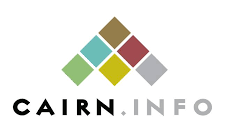Politique éditoriale
Nous voulons que la ROR soit un espace de discussion multidisciplinaire fertile pour la production de connaissances sur les sujets qui la concerne. Ces espaces sont malheureusement trop rares et leur entretien représente un véritable challenge. Nous nous engageons à relever ce défi à la ROR avec le soutien du RIODD qui a pour vocation d’accompagner et promouvoir la recherche interdisciplinaire sur les mutations des activités économiques qui redessinent de nouveaux rapports entre les sociétés et les organisations humaines. Dans ces domaines plus que dans d’autres, la dimension culturelle est importante et c’est pourquoi il nous est apparu utile d’accepter des articles écrits en français ou en anglais.
Par ailleurs, la ROR a choisi de soutenir le développement d’une pluralité de formats éditoriaux afin de permettre aux chercheuses et chercheurs de s’exprimer en toute liberté à travers des formats classiques (articles de recherche originaux) ou alternatifs (différents formats sont présentés ci-après). Ce pluralisme permet également d’assurer une ouverture du lectorat de la revue, qui dépasse la seule communauté scientifique pour s’adresser à la fois aux étudiant·es, enseignant·es et professionnel·les qui travaillent sur les transitions socio-écologiques actuelles et tentent de nourrir une perspective critique.
Retrouvez le détails des appels à contribution de la revue .
Il va de soi que la revue fonctionne selon les principes des revues scientifiques internationales : soumission des articles par les auteur·rices ; désignation d’un·e éditeur·rice en charge du papier et de deux évaluateur·rices qui examinent ces propositions préalablement anonymisées ; procédure de navette dans le cas où ces propositions devraient être retravaillées avant d’être publiées.
Quel que soit le format vers lequel le·a/les auteur·rice·s se tournent, le comité de rédaction est attaché à la portée critique des textes, qui doivent proposer une contribution pour augmenter l’état des connaissances des stratégies et pratiques présentées comme responsables. Enfin, la ROR a le souci de ne pas être une simple procédure de sélection et elle s’efforce d’apporter, dans la mesure de ses moyens, une aide aux auteur·rices qui s’inscrivent dans son projet éditorial afin de les aider à progresser dans la production de connaissances scientifiquement validées.
Le comité de rédaction sélectionne les articles avec un souci d’impartialité. Il accorde une attention particulière aux articles participant au débat scientifique. Tout article présentant une critique pertinente d’un article paru dans la revue peut être proposé pour publication. Par ailleurs, tout auteur peut proposer une réponse à une critique émise dans la revue à l’encontre de son article.
Les auteurs s’engagent à ne pas dépasser dans les articles soumis, les règles du débat scientifique et à ne pas faire des déclarations diffamatoires qui pourraient être interprétées comme des atteintes à la réputation d’une tierce personne.







